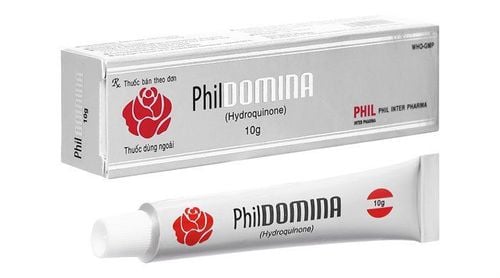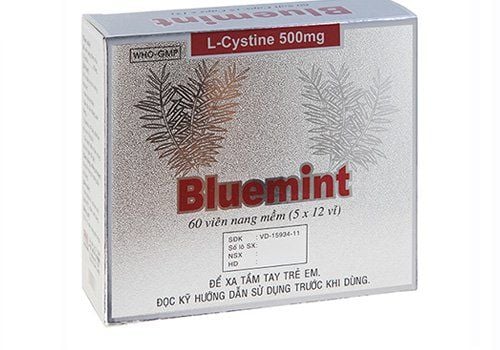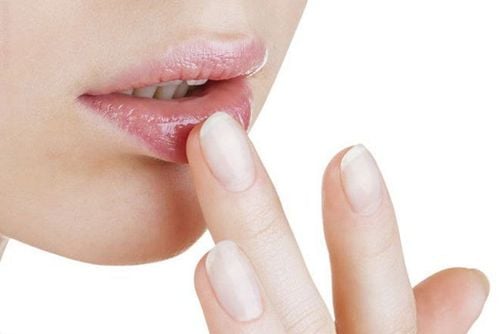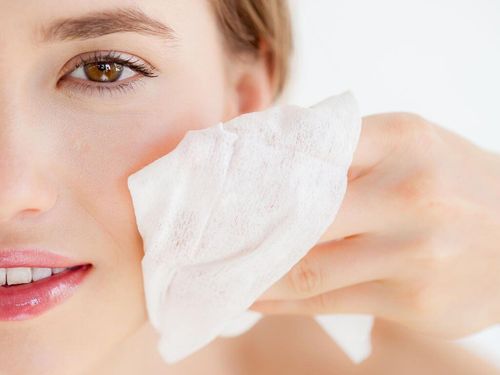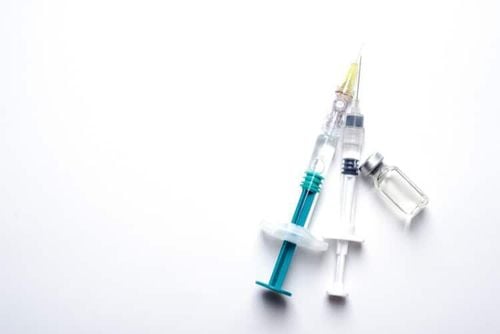This is an automatically translated article.
Hyperpigmentation is a fairly common and usually harmless condition. With this condition, patches of skin will become darker than the surrounding normal skin. This darkening occurs when an excess of melanin, the brown pigment that gives normal skin color, forms deposits on the skin. Hyperpigmentation can affect the skin color of people of all races.
1. What is hyperpigmentation?
The condition that causes the skin to darken is called hyperpigmentation . These can be small, covered patches with large areas of skin, or they can affect the entire body. Hyperpigmentation is usually harmless, but it can be a symptom of another health condition.
You may encounter several types of hyperpigmentation, including:
Melasma: It is caused by hormonal changes during pregnancy. Areas of hyperpigmentation are common on the abdomen and face, however it can occur in any area of the body. Sunburn: It is caused by prolonged exposure to the sun. Hyperpigmentation manifests as skin spots on sun-exposed areas such as hands and face Acne: This is usually the result of damaged skin.
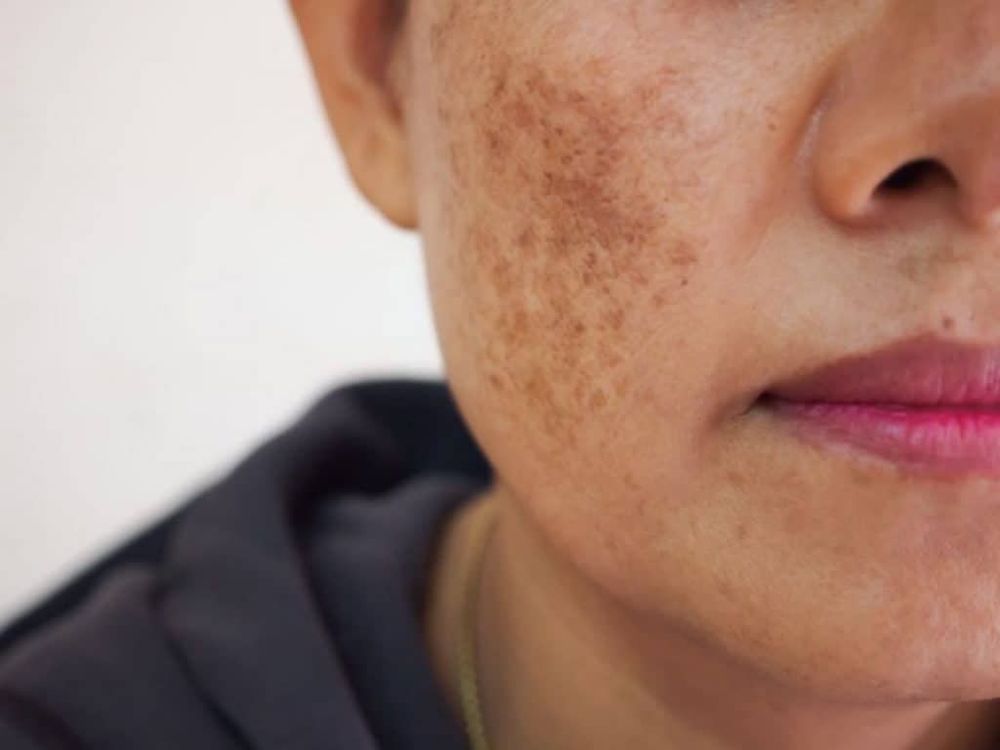
Nám là dấu hiệu của tình trạng tăng sắc tố da
2. Causes of hyperpigmentation
Melasma is a common form of skin hyperpigmentation. This condition occurs due to damage from the sun. These small, dark patches of skin are often found on the hands, face, or other areas of the body that are frequently exposed to the sun.
Melasma - this is similar to tanning, but these are darker areas of skin that are larger in size and often appear due to hormonal changes. For example, when you are pregnant, it can trigger the overproduction of melanin, causing melasma. Taking birth control pills can also increase skin pigmentation because they can go through the same hormonal changes as during pregnancy. If hyperpigmentation is severe, you should stop using birth control pills.
Changes in skin color can result from external causes. For example, skin diseases like acne can leave dark spots after the condition goes away. Other causes of skin pigmentation are injuries to the skin, including some surgeries. Freckles are small brown spots that can appear anywhere on the body, but are most common on the face and arms. Freckles are an inherited trait.

Di truyền có thể là nguyên nhân gây tàn nhang
Freckles, age spots and other dark patches of skin can become darker or more pronounced when the skin is exposed to the sun. This happens because melanin absorbs the energy of the sun's harmful ultraviolet rays to protect the skin from overexposure. The usual result of this process is tanning, which tends to darken already hyperpigmented areas.
Skin cells that specialize in melanocytes produce excess amounts of the pigment melanin (hyperpigmentation), which causes the skin to darken when exposed to sunlight. For some people with fair skin, some melanocytes produce more melanin than others in response to sunlight. Freckles are caused by this uneven production of melanin and are often genetic. Depending on the type, the actual causes of hyperpigmentation vary widely.
Causes of localized hyperpigmentation, which may include:
Exposure to sunlight Dermatitis Inflammatory skin conditions Skin trauma Abnormal skin growth Some trauma such as cuts, burns or Inflammation caused by disorders like acne and lupus can also cause hyperpigmentation after they go away. Some people's skin becomes more sensitive when exposed to certain plants such as lemons, celery.... that contain furvitymarin compounds compared to the effects of ultraviolet rays. This condition is called photochemical contact dermatitis. The skin will become thick and dark in the armpits, back of the neck in people with acnthonis nigricans disorder. Acanthosis nigricans can also be a symptom of diabetes.
Increased lentigines are responsible for darkening of the skin with oval, brown spots.
Sun tanning is the most common type of hyperpigmentation. Most of these conditions appear in middle-aged people and as you get older, the number increases gradually. People with melanoma may have a higher-than-normal risk of melanoma, even though the melanocytes are benign. Skin darkening can also be caused by melanoma lentigines if certain genetic disorders are present, such as Peutz-Jeghers syndrome (characterized by multiple lentigines on the lips and polyps in the stomach and intestines), dry skin syndrome pigmentation and multi-lentigine syndrome (LEOPARD syndrome). Doctors can remove them with cryotherapy (cryotherapy) or laser therapy if too many lentigines are not available.

Ánh nắng mặt trời làm tăng tế bào lentigines gây sạm da
Some other causes of widespread hyperpigmentation include:
Hormonal changes Medical diseases Drugs, chemicals and heavy metals Increased melanin production and darkening of the skin due to hormonal changes may occur in people with Addison's disease, who are pregnant, or using hormonal birth control. Some cases of primary biliary cirrhosis may also cause increased melanin production.
Melanin is not the cause of hyperpigmentation in some cases, but it may be due to other pigments not normally present in the skin. Hyperpigmentation can occur in people with conditions such as hemochromatosis or hemosiderosis, due to too much iron in the body. Certain medications, chemicals, and metals applied to the skin, taken by mouth, or injected can also cause hyperpigmentation.
Areas of hyperpigmentation are often widespread, however some medications can affect certain areas. For example, some people have certain drug reactions, to which certain medications (eg, some antibiotics, NSAIDs, and barbiturates) cause localized hyperpigmentation in the same places each time the drug is administered.
Hyperpigmentation skin can be purple, bluish black, golden brown or shades of blue, silver and gray depending on the drug, chemical or metal and where it is concentrated on the skin. In addition to the skin, areas of discoloration can occur in the teeth, nails, whites of the eyes (sclera), and the lining of the mouth (mucosa). In some cases, the hyperpigmentation usually disappears after stopping the drug. In other cases, however, the hyperpigmentation is permanent.
3. Treatment of skin hyperpigmentation
You can control hyperpigmentation through the following measures:
Sun exposure should be avoided. Use a sunscreen with an SPF of 30 or higher if going out during the day to protect your skin and prevent pigmentation. Do not touch or squeeze the skin. You should avoid picking or touching spots, scales, and acne to prevent hyperpigmentation from forming after skin damage. It is possible to reduce skin pigmentation by using aloe vera. Aloeshim present in aloe vera helps to reduce skin pigmentation by inhibiting the production of melanin in the skin. Aloe vera gel can be used to apply to the skin daily. Creams containing licorice extract can help reduce skin pigmentation. Several studies have shown that licorice extract (glabrindin) has anti-inflammatory, antioxidant, and skin-whitening effects. You can use creams containing glabridin on hyperpigmented areas. Green Tea: Hyperpigmentation can be improved by using green tea extracts with the antioxidant and anti-inflammatory properties of green tea. However, green tea extract is very limited in improving melasma and reducing sunburn.

Sử dụng gel chiết xuất từ lô hội giúp cải thiện tình trạng tăng sắc tố da
Vinmec International General Hospital with a system of modern facilities, medical equipment and a team of experts and doctors with many years of experience in medical examination and treatment, patients can rest assured to visit. examination and treatment at the Hospital.
Please dial HOTLINE for more information or register for an appointment HERE. Download MyVinmec app to make appointments faster and to manage your bookings easily.
Reference source: aocd.orgMORE
Hyperpigmentation, hypopigmentation and your skin Hyperpigmentation: What causes skin to darken? Home remedies for skin pigmentation: How to get rid of dark spots





